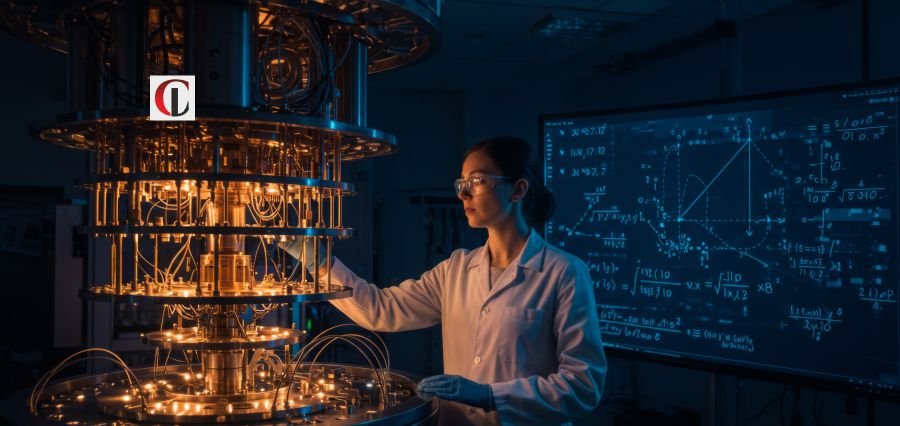Quantum science is probably the most groundbreaking field of research globally today with record achievements in so many fields. Space technology is one that will benefit the most from quantum achievements. As space missions go farther and farther into space and demands for data are increasingly getting more complex, classical means are getting to their limit. Quantum technology, which includes quantum communication, sensing, and computing, will make space exploration a more efficient, accurate, and reliable process. Governments, research institutions, and the private sector are investing heavily in this field with the vision to develop quantum concepts for deployment on highest performance- and resilience-oriented space missions. The history of space exploration has been the primary driver behind propulsion, materials, and communications technology. But with more and more advanced space missions leaving the launchpad and greater dependence on real-time information processing and secure communication, mature technology is reaching its limit. Quantum science here offers leap-ahead solutions by leveraging the very essence of quantum mechanics—superposition, entanglement, and quantum coherence. These enable quantum leaps in secure communication, ultra-sensitive sensing, and computer capabilities to solve many of the most compounded space technology challenges.
Securing Data Beyond Earth
Quantum communication is the most inspiring use of space for quantum technology. Radio frequency signals employed for use in satellite and deep space communications are vulnerable to eavesdropping, jamming, and loss of signal. Quantum communication, especially via quantum key distribution (QKD), offers a secure substitute based on quantum mechanics principles. Quantum states like photons that carry information cannot be tapped or copied without being detected, and hence system security is guaranteed for information transfer. Quantum communication via space has already been tested and demonstrated through some pilot missions.
China’s Micius satellite has also successfully transmitted entangled photons thousands of kilometers away, showcasing quantum encryption space application outside Earth’s atmosphere. Meanwhile, collaborative efforts between European space agencies and private technology companies are endeavoring to create global quantum networks to interconnect satellites, ground stations, and interplanetary telecommunication networks. They fall in the category of clandestine operations such as denial intelligence, scientific information exchange, and manned flight in the future where secure and interceptable communication is impossible.
Enhancing Observation and Navigation
Quantum sensing technology brings a revolution to navigation and observation in space. Environmental noise, signal contamination, and resolution limits restrict conventional sensors. Quantum sensors employ quantum entanglement and quantum coherence to measure physical parameters such as inertial forces, magnetic fields, and gravitational waves with unattainable accuracies by conventional methods. Quantum sensors are especially suitable for detection of remote celestial objects’ weak signals or measurement of very small variations in space environments with the assistance of conventional instruments.
Quantum sensing technologies are employed in uses ranging from the measurement of gravitational waves to planetary mapping and stabilization of spacecraft. Quantum gyroscopes and accelerometers, for instance, provide real-time orientation information to navigate in deep space independent of GPS signals absent in interplanetary space. Similarly, is the case with atomic clocks with quantum-based features, which provide accurate timekeeping over long distances and time itself stays right. With these technologies, next-generation space missions will for the first time be able to leverage enhanced trajectory planning, orbital insertion stability, and more accurate data acquisition for astrophysical research.
Solving Complex Space Challenges
The third pillar of quantum technology applicable to space technology is quantum computing. Classical computing fails to solve problems with a large number of variables, complex systems and huge amounts of data, which are typical of space exploration. Quantum computers, or computers that use quantum bits or qubits, can analyze two or more states at the same time. This ability saves a significant amount of computation time with better precision. This benefits space missions up to real-time simulation, flight path calculation, and weather risk prediction.
Quantum computing reaches the space frontier for artificial intelligence algorithms, climatic modeling, and material science. Quantum algorithms, for example, can optimize fuel consumption and course correction in real-time so that spacecraft can adapt to unforeseen gravitational pulls or weather patterns. New propulsion materials can be simulated using quantum simulation to withstand the adverse conditions of space or as radiation shielding against human spaceflight radiation. It will unlock the potential of computers to compute faster than the classical limit, and quantum computers will become invaluable in space endeavors in the future.
Conclusion
The quantum technologies will lead to a new space technology, which will bring solutions to the field that are not within the scope of classical systems. From secure communication networks that shield sensitive information to ultra-sensitive sensors and computing power available to everyone to support navigation and mission planning, quantum principles are building the next generation of space exploration. While system stability, environmental hardness, and scalability are formidable barriers to breach, sustained research and global collaboration are driving innovations. The use of quantum technology in space missions not only promises to drive scientific success and operational efficiency but to create new paradigms for global cooperation and technological progress. As every innovation is being made, the technologies will be at the forefront of determining human exploration of the universe.

